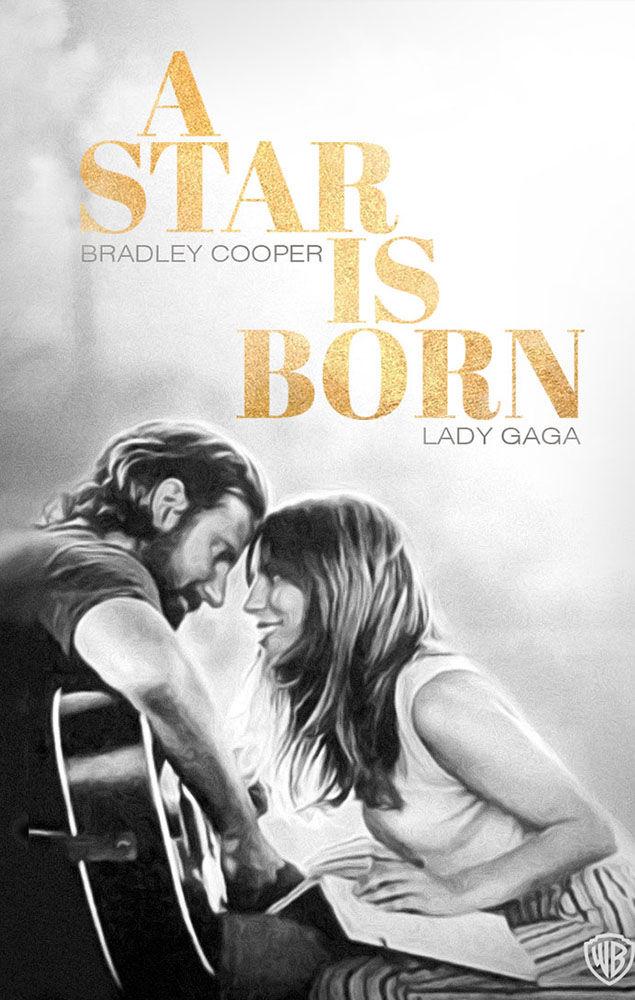Terms like “fantastic,” “truly remarkable,” and “must-see” have often been thrown around in the world of cinema, though not quite as often as their antonyms, and even far fewer of these high-praise terms are associated with sequels, reboots and remakes. Every so often, though, one of them comes along and steals the show.
“A Star is Born” has been made, in one form or another, four times since its 1937 original debuted (five if we count George Cukor’s “What Price Hollywood” from 1932). From Janet Gaynor to Judy Garland to Barbra Streisand, many prominent actresses have taken their shot at this story before Stefani Germanotta, also known as Lady Gaga. Nevertheless, she makes her case as arguably the best lead since Gaynor graced the screen over 80 years ago.
The film’s central role, though, belongs to the embattled, alcoholic country-rock singer Jackson Maine, played by Bradley Cooper, whose career has been in a tailspin for a while. Maine comes across and eventually romances Ally, a woman with all the talent but none of the luck, when he first sees her perform at a drag bar where she used to work. If this sounds like the makings of a Cinderella story, it is.
To the story’s credit, the first hour of the film is spent on developing a believable romance between the two, where most romances might have opted for some lengthier time jumps to speed up the meet-cute. Screenwriters Eric Roth and Bradley Cooper, who also serves as director, understand the importance of actor/actress chemistry and spends the first act accordingly.
As the title may suggest, Ally becomes an overnight sensation while Maine subsequently stumbles. Where previous renditions have overly-exalted the male’s career and emphasized his downfall in the shadows of the female’s ascent, Cooper’s rendition is careful to avoid that, owing as much of his downfall, if not more, to alcoholism as it does to her pop career trajectory.
Before giving too much away, the second and third acts come across a bit rushed, particularly when viewed after the first act’s slow build. The second act spends much of the time in an almost montage-like episodic view of their life on the road and at home, all the while providing a very parochial view of their time together. Rarely do we see the perception of their romance or careers from the outside, opting instead to focus on its two leads.
This is all trivial in the grand scheme of things, and likely will not play into the film’s potential awards season run considering the hype, and despite one producer’s sexual harassment suits, especially since the second half of the film only feels like it falters when compared to the first half’s brilliance.
While Cooper deserves as much praise as he is receiving, the rest of the crew deserves credit as well. The camera work from frequent Darren Aronofsky collaborator Matthew Libatique, whose “Venom” debuted alongside “A Star is Born” last weekend, is superb and provides the film with a grounded, atmospheric passion from start to finish. Production Designer Karen Murphy incredibly stages massive, believable concert venues that place the viewer in the middle of the show, giving them an intimate experience with the actors despite all the chaos of the crowd. Top to bottom, this film looks and sounds every bit the $37 million production it was.
Despite the lack of necessity for a remake of such an old fable, Cooper and co. have crafted a very entertaining, earnest picture from an age-old framework that proves, once again, that reboots and remakes rule the multiplexes, often commercially, but more importantly, critically.





![[Both photos courtesy of sonoma.edu]
Ming-Ting Mike Lee stepped in as the new SSU president following Sakakis resignation in July 2022](https://sonomastatestar.com/wp-content/uploads/2024/04/CC4520AB-22A7-41B2-9F6F-2A2D5F76A28C-1200x1200.jpeg)


























